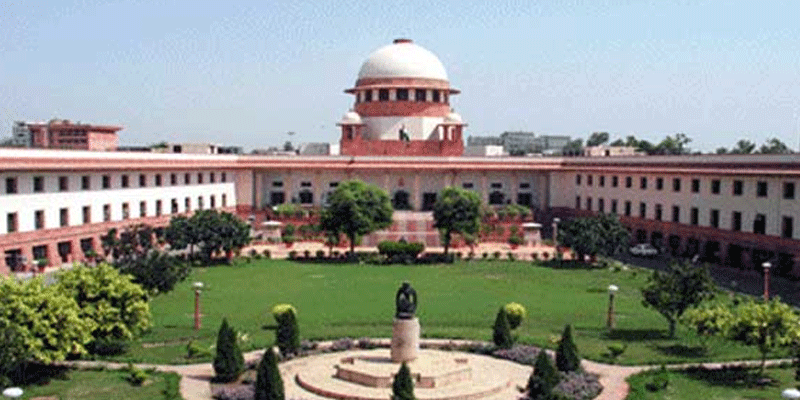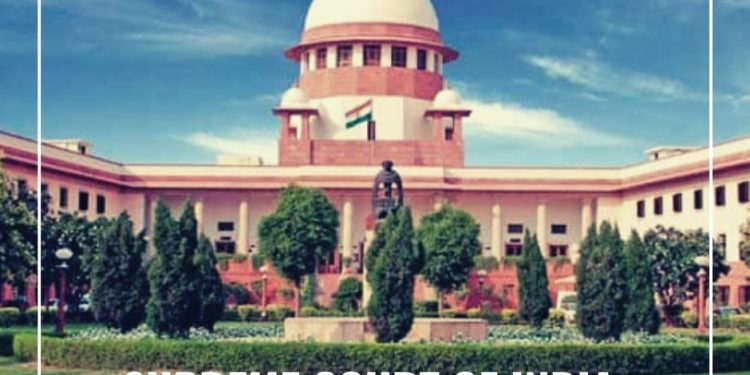Did you know our family courts are flooded with contested divorce petitions, wherein, after several years or decades of separation, either spouses, most often the wife, refuses to consent to dissolving the legal bond of a dead relationship. By the time such cases reach Supreme Court, it can well take a man nearly two decades of his prime youth to reach a stage, where Divorce or no Divorce barely matters.
Read one such case below where honourable Supreme Court has invoked special powers to grant divorce to a man after 22-years of living separately from his estranged wife.

Case:
- The couple was married in 1993
- However, within a few years of marriage, the relationship underwent a turmoil
- The husband filed for divorce in the family court of Andhra Pradesh and subsequently in Andhra Pradesh High Court, since his wife refused to consent for divorce
- It must be noted that ‘Irretrievable Breakdown of Marriage’ currently is not a ground for divorce under the Hindu Marriage Act Or Special Marriage Act
- However, after more than 2 decades, Supreme Court has come to rescue, if we may say rescue of basic human rights of this man, by invoking Section 142 (special powers to do ‘complete justice’) and granted divorce to the husband on grounds of irretrievable breakdown of marriage
- The court took note of the fact that the couple had been living separately for more than 22 years and it would not be possible for the parties to live together
- While dissolving a marriage solemnised in May 1993 wherein the husband failed to prove charges of cruelty against the wife and both the trial court in Telangana and the high court refused to grant divorce to the man, the top court rejected the woman’s contention that her consent was needed for it
- In the judgement, the court noted “divorce can be granted in a contested case, if the relationship is ‘totally unworkable, emotionally dead and beyond salvage”
- However, noting the wife’s interest needed to be protected financially so that she may not have to depend upon others, the Bench ordered the husband to pay Rs 20 lakh as one-time alimony to her within eight weeks
ALSO READ –
After 33-Yrs, Wife Who Deserted Husband Shows “Magnanimity” Of Not Contesting Divorce Further | Man Pays Alimony
A bench of Justices S K Kaul and M R Shah said,
This Court, in a series of judgments, has exercised its inherent powers under Article 142 of the Constitution of India for dissolution of a marriage where the Court finds that the marriage is totally unworkable, emotionally dead, beyond salvage and has broken down irretrievably, even if the facts of the case do not provide a ground in law on which the divorce could be granted.
Under the Hindu Marriage Act, 1955, a marriage can be dissolved on the grounds of:
- Bigamy
- Adultery
- Insanity
- Cruelty
- By mutual consent of both the parties
Our law doesn’t recognise “irretrievable breakdown of marriage” as a ground for divorce. Even the Special Marriage Act, 1954 doesn’t recognise it. However, the top court and high courts have been using their inherent powers to dissolve failed marriages. The bench explained,
If both the parties to the marriage agree for separation permanently and/or consent for divorce, in that case, certainly both the parties can move the competent court for a decree of divorce by mutual consent. Only in a case where one of the parties do not agree and give consent, the powers under Article 142 are required to be invoked to do the substantial justice between the parties, considering the facts and circumstances of the case.
Our Take:
- The Judgement may sound as a breather to many men who have been fighting divorce battles of a dead marriage for decades
- While this final stamp of legal separation would have given some relief to the husband, whether the same is worth it at this stage of life is the big question
- We are assuming the man to at least be in his 50s, who would have missed out on all his prime years of life, where he could have had a new family
- Another question that we want to raise is whether such judgments will be standardised or these are one off judgements and highly subjective in nature?
- What according to Supreme Court will be reasonable number of years of separation to invoke such orders?
- By the time such cases reach Supreme Court, the case would have been easily running for at least a decade if not more
- It is time our government and judiciary make “irretrievable breakdown of marriage” as a much needed ground for divorce in India, along with standard guidelines such as years of separation, quantum of alimony, whether even alimony should be paid or not, etc.
- It will be totally unfair if Supreme Court asks a man to pay alimony to his 22-year-old separated wife on current income
- All these aspects need to be discussed, debated and sealed
- For the women who are fighting such dead cases, it is purely a battle of ego as that becomes their sole identity of victory by keeping the man legally trapped
- In the end, the partner who has mentally moved on in his/her life is the real winner
ALSO READ –
https://voiceformenindia.com/health-lifestyle/bollywood-divorce-stories/
Follow www.mensdayout.com on Facebook, Twitter and Instagram
Join our Facebook Group or follow us on social media by clicking on the icons below
If you find value in our work, you may choose to donate to Voice For Men Foundation via Milaap OR via UPI: voiceformenindia@hdfcbank (80G tax exemption applicable)































